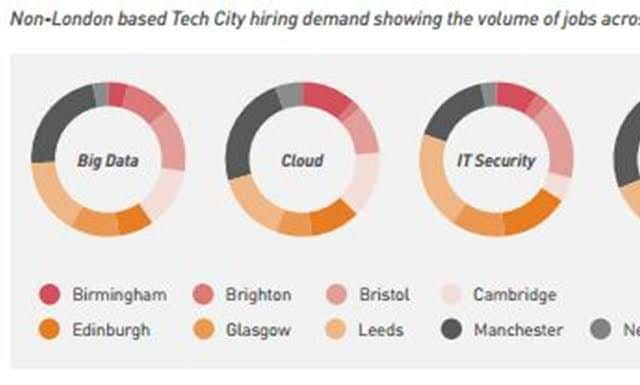Five essential job skills for a digital Scotland


The number of people employed in ICT and digital technology roles in Scotland is forecast to increase by 15 per cent to 84,000 in by 2020, resulting in an increasing the demand for online skills such as data analysis and cyber security. Looking ahead, we take a look at what online skills will become essential over the next five years. Software development
Job growth in Scotland will be particularly concentrated in areas such as software development, software engineering and web development. As companies continue to invest in digital transformation projects including developing cutting edge applications and integrating their websites with internal systems and databases, demand is likely to grow.
Advertisement
Hide AdAdvertisement
Hide AdThere has already been a 50 per cent increase in demand for software professionals over the last ten years, according to the Skills Investment Plan Scotland (SIP), for Scotland’s ICT and Digital Technologies.


Data Analysis
Claire Gillespie, ICT and Digital Technologies Sector Skills Manager at Skills Development Scotland explains that data analysis, data organisation and skills to interpret ‘big data’ are high up on the list of employers requirements. She explains: “Employers in the digital technology sector are looking for people with a wide range of abilities such as maths, problem solving and analytical skills.
“There is still a demand from businesses for people with traditional programming skills, but they are also increasingly looking for people to fill emerging areas like data science.For example, they need people who can analyse lots of data and make it meaningful for the company. Equally the more data we have available, the more that security becomes important so these areas go hand in hand.”
Coding and HTML
In order to build and facilitate a high performing digital economy, possessing skills in coding is going to become increasingly desired. Gaining coding skills gives individuals the ability build websites and see them go live. In order to overcome the shortage of around 11,000 digital skilled professionals, academies like CodeClan have been set up to prepare people for the future.
Having skills in HTML can also help with other aspects of online such as blogging on sites such as Wordpress or Blogger.
Cyber security
In the wake of recent security hacks, it’s likely that cyber security will become a bigger priority over the next five years. Cyber security skills are desirable for most businesses as it can enable them to manage online risk effectively, reducing the financial cost to the company and protecting them from cyber crime while increasing consumer confidence.
Mobile
The influx in apps and mobile platforms to keep pace with consumer demand means that in years to come, skills in mobile technology are likely to be essential. In Glasgow alone, demand for professionals trained in mobile technology rose by 75 per cent in 2014, with 501 roles being advertised throughout the year.